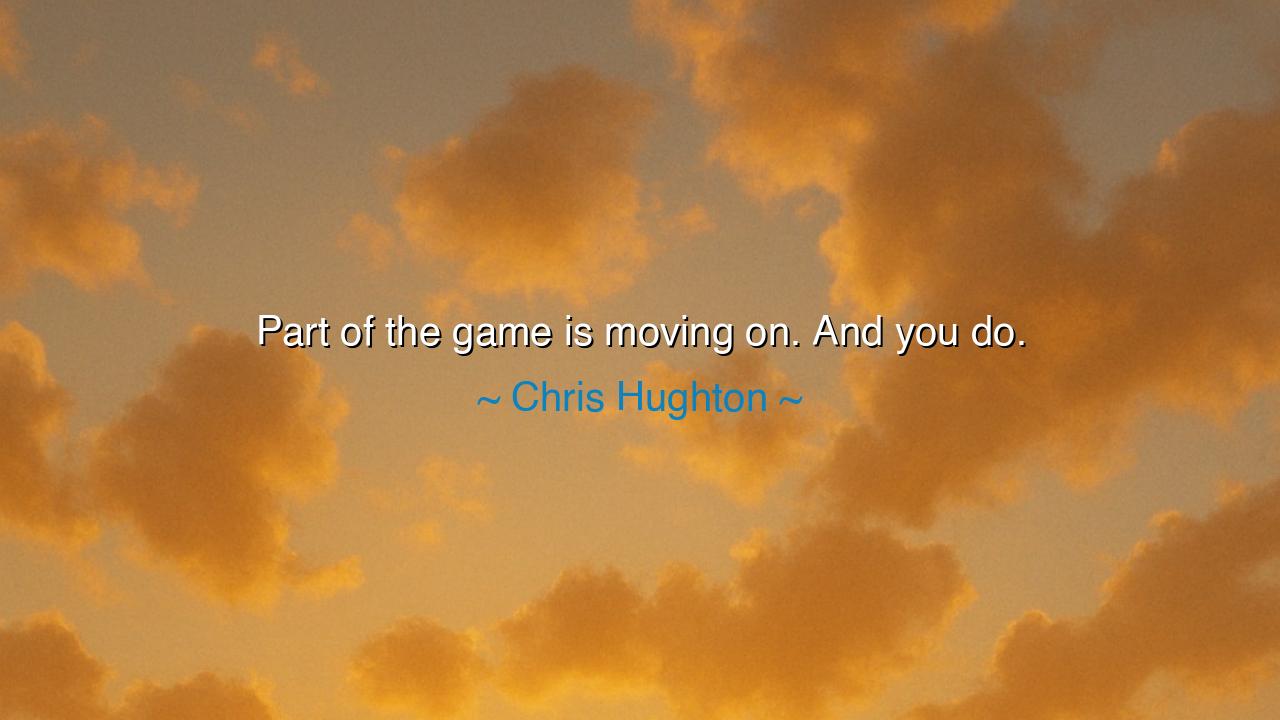
Part of the game is moving on. And you do.






Hear the calm and steady wisdom of Chris Hughton, a leader of men upon the field of football, who declared: “Part of the game is moving on. And you do.” These words, though simple, carry the weight of life’s eternal rhythm. For the game is not only sport—it is the mirror of existence itself. In it we see victory and defeat, joy and despair, effort and rest. And at the heart of it all is this lesson: no matter the outcome, no matter the pain or the glory, life does not stand still. The game continues, and so must you.
Moving on is not denial, but courage. To move on is to release the grasp of what has passed—whether triumph or failure—and to turn your eyes toward what lies ahead. The player who clings too long to yesterday’s loss carries chains into tomorrow’s contest. The one who lives forever in yesterday’s victory becomes weak and unprepared for today’s challenge. Hughton reminds us that the noble spirit does not linger endlessly in what has been, but steps forward into what must be.
The ancients themselves spoke of this truth. Heraclitus, the Greek philosopher, declared that no man steps into the same river twice, for the waters are always flowing. So too with the game, so too with life: the moment is gone, the tide has passed, and to dwell in it is to fight against the current of time itself. The wise do not resist this flow—they move with it, letting the past instruct but not imprison them.
Consider the tale of Michael Jordan, whose greatness was not forged by victory alone but by his ability to rise after defeat. In 1995, returning from retirement, his team was struck down by the Orlando Magic. Many said his time had passed. But he did not dwell there. He moved on, training harder, focusing deeper, and by the next season, he led the Chicago Bulls to three more championships. His strength was not in avoiding failure but in refusing to be chained to it. The past was gone; he moved on.
Hughton’s words also remind us of the humility required in sport and in life. For moving on is not only for the defeated, but for the victorious as well. The general who celebrates his victory too long leaves his army unguarded. The athlete who basks forever in yesterday’s glory finds himself overtaken by hungrier rivals. To truly understand the rhythm of life is to know that every ending is also a beginning, and every game, whether won or lost, must give way to the next.
The lesson for you, O seeker, is this: do not waste your days staring backward. When you stumble, learn, then let it go. When you succeed, rejoice, but do not linger. For the wheel of time turns without ceasing, and the next challenge always awaits. To live well is to carry wisdom from the past without being weighed down by it. The true victor is not the one who never falls, but the one who rises each time and continues the journey.
Practical steps are clear: after each failure, write down the lesson, then burn the sorrow. After each victory, give thanks, then lay down the crown and prepare for the next struggle. Set your eyes on the horizon, for it is always moving forward. Train yourself to say, “That was, and now this is.” In this way, your heart will remain light, your mind sharp, and your spirit unbroken.
Thus remember Hughton’s wisdom: “Part of the game is moving on. And you do.” This is not merely advice for athletes, but a command for all who live. Life itself is the game, and its essence is movement. To stay behind is to be lost; to move on is to be alive. Walk forward, then, with courage and humility, for the game continues, and so must you.






AAdministratorAdministrator
Welcome, honored guests. Please leave a comment, we will respond soon